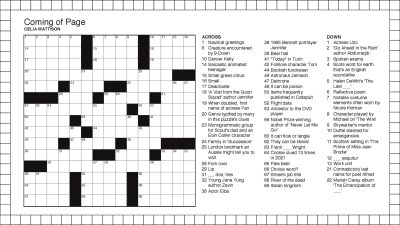Language
How to Say I Love You in Bangla
At the kitchen table, Jason reminded me, “It’s our wedding. I think you can say whatever you want, in any language.”
Why I Started Writing Crossword Puzzles
But who decides what’s common knowledge?
How to Say I Love You in French
To interact with French people is to hear endless suggestions for improvement.
How to Say I Love You in Italian
With friends and family, one says “ti voglio bene”—literally “I want good for you.” And I believe love is not only something you feel, but something you do.
How to Say I Love You in Spanish
You can’t go bigger than “te amo.” No one says “te amo mucho,” because love is already very much.
When the News Is Too Much, I Read It Backward
The tidy linearity we’re used to leaves little room for revolution.
How to Love in English
If one loved in the Indian provinces, one could only love in English, with “I love you.”
On Preserving Taiwanese Through Romanization
But was there a better way to put these pronunciations on the page?
What Kind of Sonnets Will Computers Write?
If poetry is an act of discovery for a writer, then even a computational poem has to uncover something new.
When Language Wears Boots
A daughter who is jia 嫁 is out of the house is gone forever, water poured out of a bucket, never whole, never yours again.










